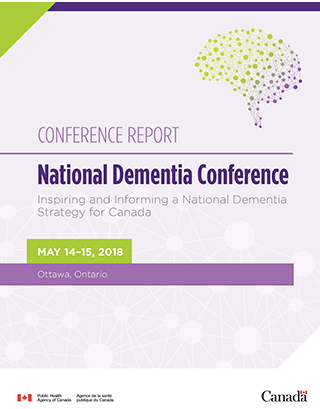 Inspiring and Informing a National Dementia Strategy for Canada
Inspiring and Informing a National Dementia Strategy for Canada
The May 14–15, 2018, a National Dementia Conference was held in Ottawa, Canada. The conference brought together about 200 participants from six key stakeholders identified in the Act: people living with dementia, caregivers, researchers, health professionals, advocacy groups and representatives from PT governments.
As a key consultation mechanism on the development of the national dementia strategy, the discussions during the conference focused on challenges and opportunities surrounding three overarching themes: 1) care and support; 2) research and innovation; and, 3) awareness-raising, stigma reduction, and public education.
Participants noted that the National Dementia Strategy should: address stigma associated with dementia; ensure the needs of people living with dementia at different stages along the dementia journey are met, and identify ways to enable quality of life and dignity for people at different stages of the condition. It should: enable collaboration and partnerships among all levels of government, partners and stakeholders, including people living with dementia, their families and those who care for them; enable sharing and scaling up of best practices within and across provinces and territories; consider diversity factors such as cultural, ethnicity and linguistic considerations, rural and remote communities, gender differences, developmental disabilities; and include clear accountability for federal, provincial and territorial governments and other partners. This report provides highlights of the discussions at the event. The outcomes of the conference and other stakeholder engagement processes to date will be included in a“What We Heard” report, which will be released in the Fall of 2018. All input will inform the development of the National Dementia Strategy.
Source: Public Health Agency of Canada

















